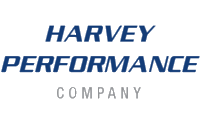The move to EHRs was designed to improve the safety, quality and efficiency of patient care. While some hospitals and physicians’ offices have successfully implemented hospital information system software, many more are struggling.
The Health Information Technology for Economic and Clinical Health Act (HITECH Act), created in 2009, created a mandate that hospitals and doctors’ offices adopt EHRs by 2018 or face penalties.
They offered incentives for healthcare organizations that could meet “meaningful use” guidelines from 2011-2015. After that, healthcare systems and physicians who didn’t use EHRs or couldn’t show that they met Meaningful Use standards would face penalties.
More than half of the doctors who bill Medicare are facing penalties of 1 percent of their 2015 payments because of a failure to comply with Meaningful Use, according to Dr. Steven J. Stack, president of the American Medical Association.
This legislation, combined with the Affordable Care Act, makes it critical that hospitals can access and analyze patient data, including population health data, healthcare costs and readmission rates.



















